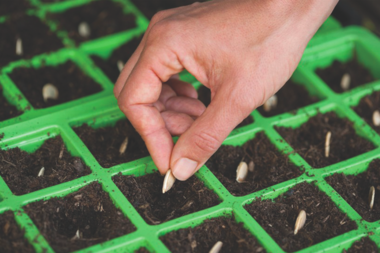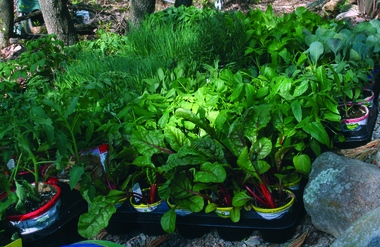Plan and budget for a good return on your garden investment

The first of the 2018 seed catalogs will be arriving soon in the mail, signaling the start of another growing season. Savvy vegetable gardeners pore over the pages while choosing plants and drafting budgets.
Planning provides healthier returns for what can become a costly investment.
"Food gardening, like any hobby, can get as expensive as you wish, but there are many ways to have a productive garden at a reasonable cost," said Brooke Edmunds, an Extension community horticulturist with Oregon State University.
"Setting a budget can be helpful," Edmunds added. "Keep in mind that many of the costs are upfront (bulk soil amendments and tools), and then smaller annual costs — items like seed and fertilizer — can even be further managed by being a smart shopper."

Don't overdo it. Planting a garden too large for your needs depletes pocketbooks, and leads to food waste and unnecessary work. Determine what you eat the most and stick to the basics.
Some additional tips for keeping costs down while providing family nutrition:
Buy small. Use seeds rather than seedlings. "You'll get a lot more plants. Some (seed) packets have 100 seeds,” Edmunds said.
Select vegetables with a long shelf life or that can easily be preserved or dried. Potatoes, apples, onions and winter squash can be shelved safely for several months after being harvested.
Related:
November's check list before frost
The great pumpkin
Gayly Gardeners: Fall gardening
Choose items that cost the most at the grocery store, like tomatoes and melons. Or "grow things you won't find in the produce sections," said George Dickert, an extension director with Clemson University. "Most heritage varieties taste a great deal better than the commercially grown hybrids."
Attend plant and seed swaps. Collect cuttings. Shop the sales. Buy out of season when items have been marked down. Dig through the bargain bins at nurseries.
Reduce inputs. Use rain barrels for irrigation, and convert kitchen scraps to compost. Reuse bricks, cement chunks and stones for retaining walls and trails. Make trellises and fencing from bamboo poles.
Grow organic. Stop using expensive chemical pesticides, herbicides and fertilizers that may be harmful to the environment and your health.
Share the workload. "Get together with other families," Dickert said. "Everybody can have a garden or a central garden where everyone has crops. One family does the watering, another the weeding. It makes for a very nice arrangement and can be as large or as small as you want."
Buy in bulk. Get your soil mixes, mulch, yard debris and leaves, rocks and wood chips for little or nothing by contacting arborists, landfills and landscape companies. Split the loads and delivery costs with neighbors. "Find a central location and divide it up," Dickert added.
Another way to shave costs and stock your larder at the end of the growing season?
"After you've brought in the harvest, it makes sense for people to gather for some canning and preserving," Dickert said. "Get together and buy together - jars and other materials. Meet in somebody's kitchen, get it all done and share it."
By Dean Fosdick, Associated Press. All rights reserved.
The Gayly 1/7/2018 @ 8:00 a.m. CST





